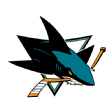All the questions surrounding Yaroslav Askarov‘s future received an answer Friday when the Nashville Predators traded him to the San Jose Sharks.
The Sharks got Askarov, forward Nolan Burke and a 2025 third-round pick that originally belonged to the Colorado Avalanche, while the Predators received forward David Edstrom, a 2025 conditional first-round pick belonging to the Vegas Golden Knights and goaltender Magnus Chrona.
How did each general manager fare with this trade? Let’s find out.


Sharks grade: A
Sharks GM Mike Grier and his front office staff might be having the strongest offseason of any team in the NHL.
They hired a first-time NHL coach in Ryan Warsofsky, who has a track record of winning and comes from the same ECHL program that produced Colorado’s Jared Bednar and Washington’s Spencer Carbery, the South Carolina Stingrays.
They added two top-six forwards for the future when they drafted Boston University center Macklin Celebrini with the No. 1 pick while signing Boston College freshman Will Smith, their first-rounder from 2023, to an entry-level contract.
They added veterans such as Cody Ceci, Barclay Goodrow, Tyler Toffoli, Jake Walman and Alexander Wennberg to improve upon their last-place finish from last season while adding veteran leaders to a young roster.
And then they used Friday to trade for one of the top goaltending prospects in the NHL.
Ever since Askarov was drafted 11th in 2020, the expectation was that he had a chance to be a legitimate franchise goaltender at a time when Russia is producing some of the game’s best talent in net. He used the AHL as a proving ground, winning 56 games with a 2.50 goals-against average and a .911 save percentage in two seasons.
Any team that wanted Askarov needed the capital to make a deal possible, the salary cap space and the playing time to offer.
San Jose had everything needed to get Askarov … thanks in large part to the Tomas Hertl trade this past spring. They received Edstrom, a first-round pick in 2023 and a conditional first-round pick from the Golden Knights.
Initially, Askarov had one year left on his contract worth $925,000, before restricted free agency next summer. But the Sharks signed him to a two-year contract worth $2 million annually after the trade. That allows Askarov to receive a pay bump, with the idea it gives the Sharks more than just one year to assess what a long-term deal should look like.
Prior to signing Askarov’s extension, the Sharks needed to sort out how they would handle their goaltending situation given they have Mackenzie Blackwood and Vitek Vanecek, both of whom will be UFAs at the end of the season. With the reality the Sharks are going to want to incorporate Askarov into their NHL plans soon, one of the veterans could be leaving the Bay Area.
Being in a rebuild means the Sharks still need time to get back among the contenders. But what they’ve done this summer has been vital in building toward a brighter future that now appears closer, given that they have what looks like their franchise goaltender for the next several years.

Predators grade: B+
Goaltending tandems have value in the contemporary NHL. Just not right now in Nashville, which is what made the dynamic surrounding Askarov and the Predators one of the more complex situations in the league.
What made Askarov’s future with the Predators so complicated was that all the moving pieces were never going to cohesively fall into place. It starts with the notion that only Connor Hellebuyck and Andrei Vasilevskiy have played more games than Preds goalie Juuse Saros since the 2019-20 season.
Having an everyday goalie such as Saros meant the Predators needed a goalie that could be content with playing fewer than 20 games a season, particularly with Saros signing an eight-year contract this offseason worth $7.74 million annually.
Re-signing Saros to an eight-year contract, coupled with the fact he logs heavy minutes, meant Askarov was facing the prospect of receiving little playing time — far from ideal for a 22-year-old first-round pick at a time in which more teams are heavily relying on their young talent to win games.
Plus, there’s the Predators’ current situation. Eighteen months ago, it appeared as if there was a place for Askarov. Their roster was in flux, and there was a belief that Saros could be traded if the front office, which saw the transition from David Poile to Barry Trotz, needed to hit the reset button.
Since then, the Predators have gone from retooling their roster to making the playoffs. That led to the front office opting to go all-in on trying to win now, signing Jonathan Marchessault, Steven Stamkos and Brady Skjei in free agency.
All these factors contributed to why Askarov’s time in Nashville came to an end, with the realization that Trotz also had the runway to wait for a deal to materialize. Or, that was the case, until it was reported that Askarov said he would not report to the Predators’ AHL team and had requested a trade.
Finding equal value for a top prospect was always going to prove difficult, which is what made the Sharks’ offer alluring. Edstrom is a 6-foot-3, two-way center who has been playing against professionals since he was a 17-year-old in Sweden.
Edstrom projects as a top-nine center, and he joins one of the stronger prospect pools in the NHL — one that now has a chance to add even more.
Getting the conditional first-round pick sets up the Predators to have three first-round picks in the 2025 draft. The Preds also have Tampa Bay’s first-round pick from the Tanner Jeannot trade in 2023.
